Engineers Develop Zero Gravity Fridge For Astronauts Spending Years Travelling Through Space
A NASA-funded project is developing a zero-gravity fridge for astronauts so that they can have better food while spending years travelling through space because conventional fridges cannot work without gravity.
Fridges designed to operate on Earth will not work in space because their systems use oil, which cannot be pumped around the unit easily due to the lack of gravity. Furthermore, the heat generated at the back of an Earth fridge is problematic, because heat does not dissipate easily when in space, which would lead to the fridge overheating.
Considering that it has been sixty years since Yuri Gagarin was the first man in space, many are still surprised that we still don’t have the technology to put a refrigerator into space.
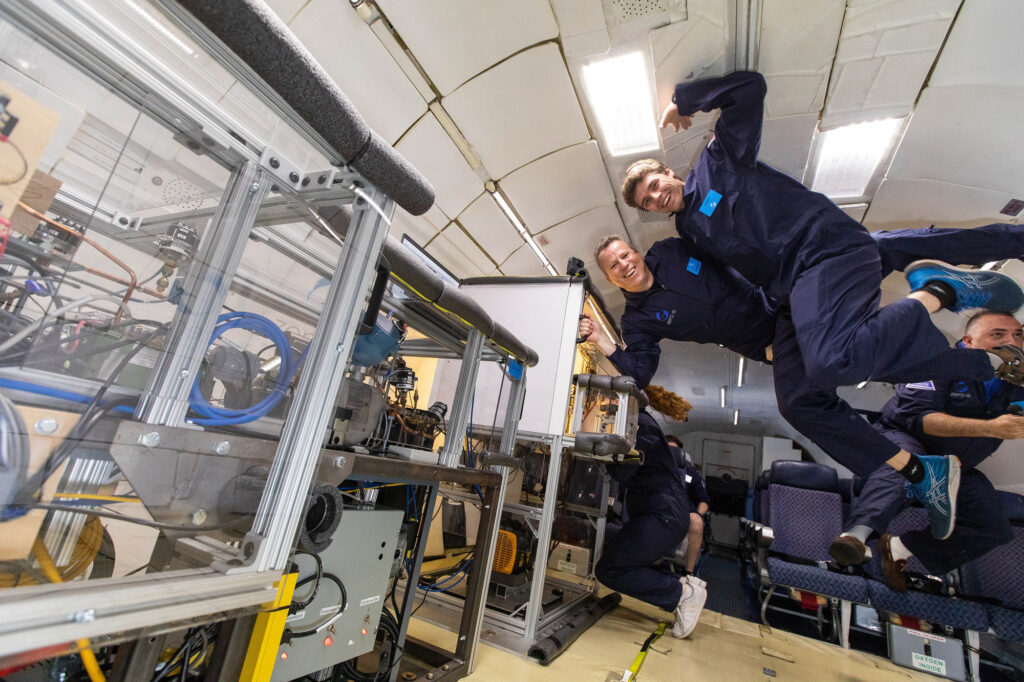
As a result, it means that astronauts have to rely on eating canned and dried food with a shelf life of around three years.
The NASA-funded project led by a team of engineers from Purdue University, Air Squared Inc., and the Whirlpool Corporation is developing the zero-gravity fridge that will improve the quality and longevity of food eaten by astronauts.
Eckhard Groll, the head of Purdue’s School of Mechanical Engineering, said in a statement obtained by Real Press: “We want to develop a refrigeration system that is resistant to zero gravity”
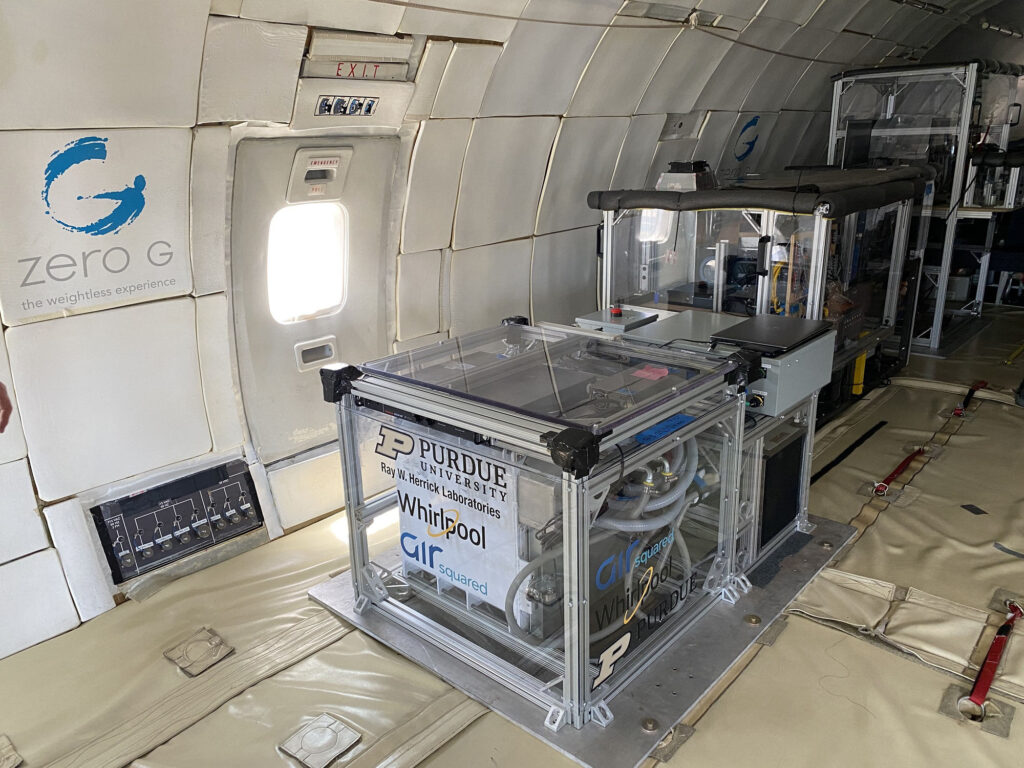
The team believes that the prototype they have developed has the potential to make refrigeration works just as well in space as it does here on earth.
As seen in the footage, the team has been testing the space fridge onboard the Zero Gravity Corporation’s (ZERO-G) weightless research lab.
The specially designed plane flew in microgravity 30 times during 20-second intervals during four different flights, giving the engineers time to gather data on how their prototype functions in a zero-gravity environment.
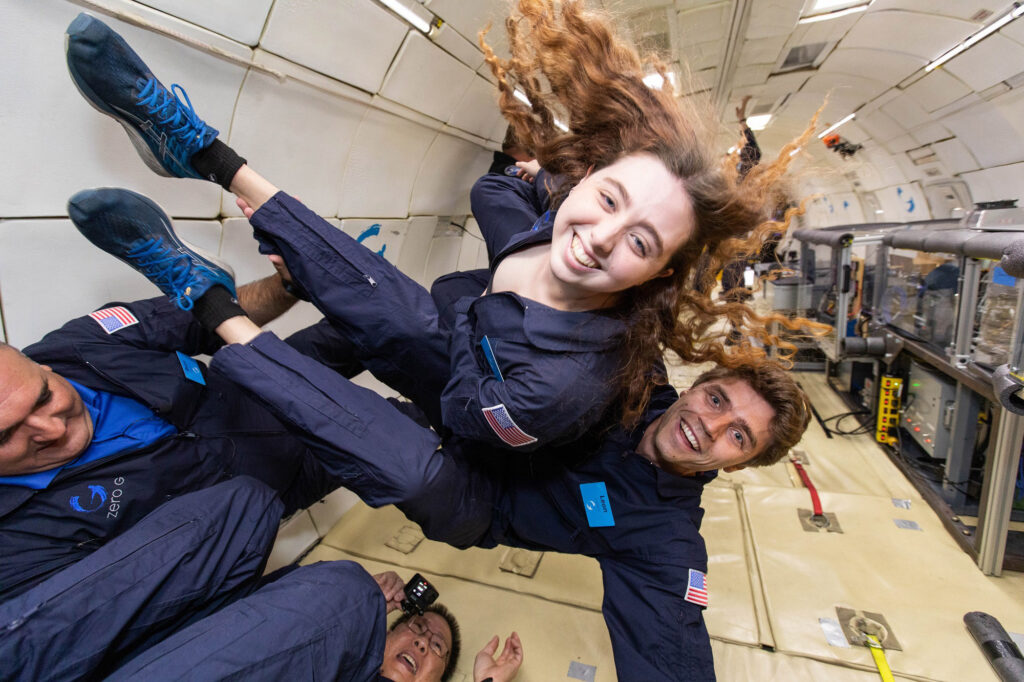
The data gathered during the flights which simulated both martian and lunar gravity were positive, showing that the fridge worked just as well in zero-gravity as it did in normal conditions, and no liquid from the device leaked during the flight.
Groll said: “Our initial findings have shown that our design allows gravity to have less impact on that refrigeration cycle.”
He added that there have been attempts to design refrigeration devices for space missions in the past but they have generally failed completely or not worked very well.
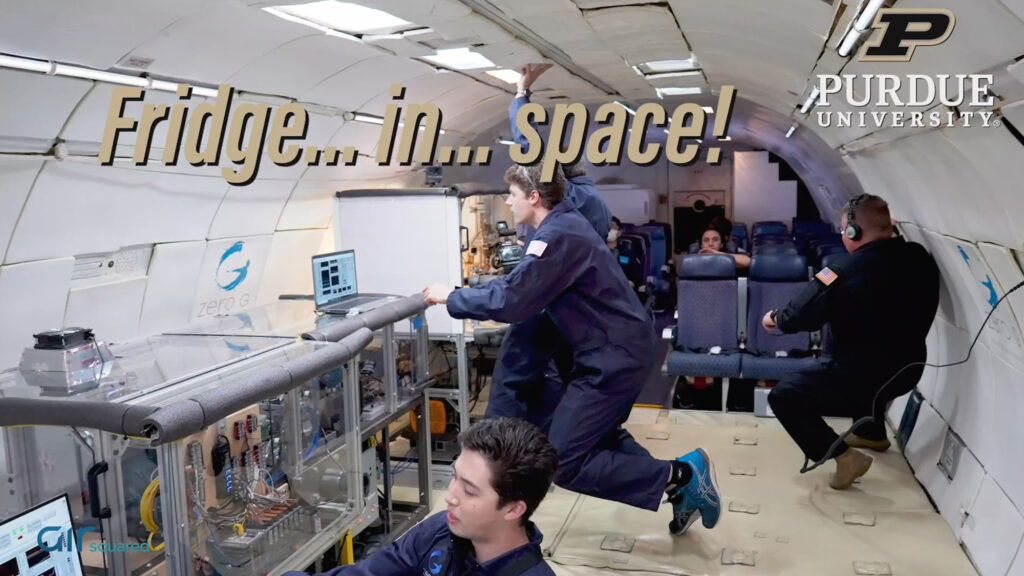
The fridge uses a very similar system to our household devices but without relying on oil. By using an oil-free system the issue of oil not flowing the way it’s supposed to due to the lack of gravity is removed.
The prototype, which is about the size of a microwave, is designed to fit into special racks onboard the international space station.
The team can be seen floating around the lab in the video as they test the theory that pushing cooling fluids through a vapour-compression cycle at a high velocity would reduce the negative effects of low gravity on the fridge’s performance.
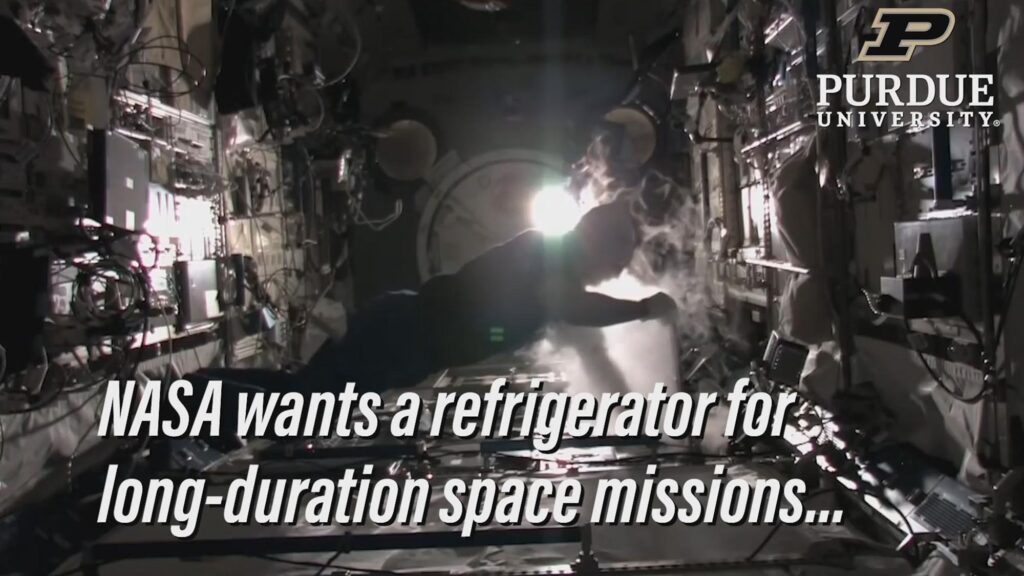
Leon Brendel, a Purdue PhD student in mechanical engineering, said: “The fact that the refrigeration cycles operated continuously in microgravity during the tests without any apparent problems indicates that our design is a very good start,”
He went on: Our first impression is that microgravity does not alter the cycle in ways that we were not aware of when we tested the effects of gravity on the fridge design on the ground by rotating and inclining it.”
Paige Beck, who is majoring in mechanical engineering at Purdue, said: “Floating around with the experiments is kind of like swimming, except that you don’t have resistance around you and you have to work to get the data at the same time. “
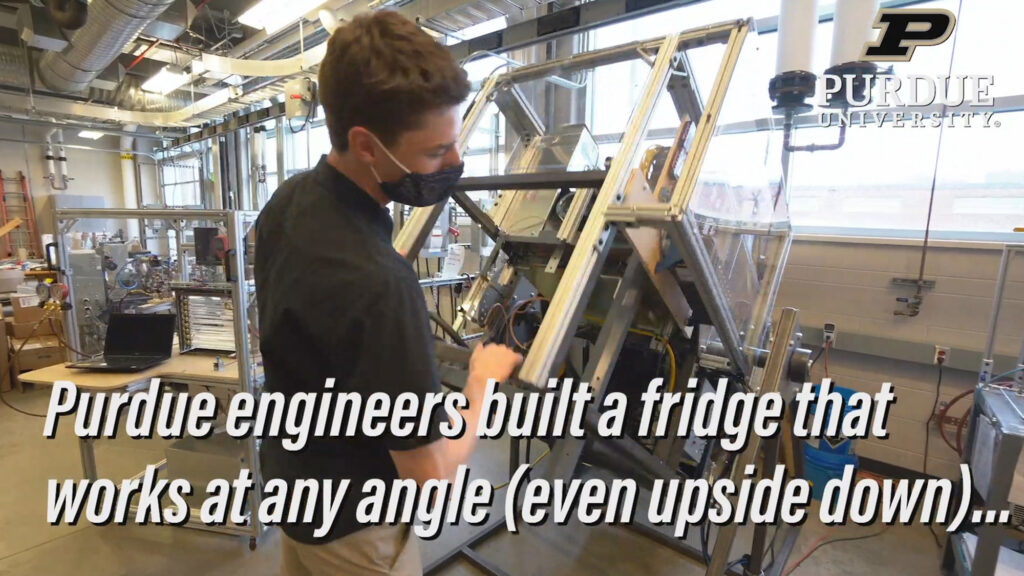
Brendel also found the process of collecting data without his feet on the ground difficult and said: “Sometimes I was too slow! But you learn as you go, and we successfully got the data we needed,”
Having successfully collected the data despite the challenging conditions the team will now complete the analysis of how effectively the space fridge faired during the experiment.



